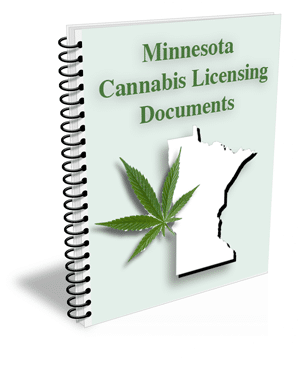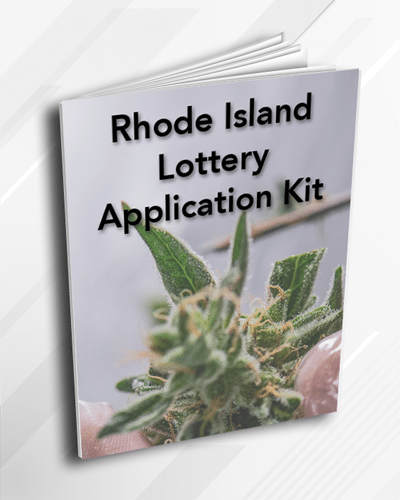What Are the Rhode Island’s Cannabis Licensing Requirements?
Rhode Island legalized adult-use cannabis on May 25th, 2022. The text of the statute can be found here: Rhode Island Cannabis Act.
The legislation specified a maximum of 33 retail licenses to be distributed between 6 zones around the state. Nine of those recreational cannabis licenses were already allocated to previously licensed medical marijuana dispensaries (Compassion Centers), leaving 24 more to be awarded at a future date. Of the 24 remaining, according to state law, six must be reserved for social equity applicants and another six must be reserved for worker-owned cooperatives.
The regulatory agency–the Cannabis Control Commission (CCC)–is still drafting regulations and is currently working on a system to award the remaining RI dispensary licenses through a “vetted lottery” process, which means applicants will need to submit documents to show their eligibility and readiness, and if approved, will have a chance to win a random drawing for an RI dispensary license. THIS IS WHERE WE CAN HELP! You can only enter the lottery and win a license if you comply perfectly with the RI cannabis license application requirements, and we know how to do that. We have qualified dozens of applicants through recent vetted lotteries in DE, MD and KY.
The new process was created to avoid potential litigation that had occurred in other states, where merit-based competitions had been widely perceived as unfair and skewed towards big-business interests. Of course lotteries have their own down-side, which is that highly qualified and experienced applicants often lose to complete newbies.
The specific RI dispensary application requirements have not been announced as of November 2024, but they could be published any day now, along with final regulations.
Explaining the RI Cannabis License Lottery
Understanding the RI Cannabis License Lottery is important when you’re hoping to open a dispensary in Rhode Island. The state’s process for distributing Rhode Island cannabis business licenses involves a vetted lottery, which ensures fairness in who gets to operate a cannabis business. Marijuana licenses in Rhode Island are awarded through this system, making it essential for applicants to grasp how it works. That said, the regulatory agency has not yet published the process, so we are in a waiting game right now. If it mimics cannabis lotteries in other states, a set of documents will be required to submit, the agency will review them and send deficiency letters, and you’ll have one short window of opportunity to fix errors. The kinds of documents to expect are a security plan, an operations plan, a diversity plan and a business plan. WE CAN HELP WITH THESE!
The Cannabis Control Commission oversees this process, ensuring only qualified individuals receive a Rhode Island cannabis retail license. The lottery will be based on certain qualifications, so staying on top of announcements and paying attention to the fine details will really matter here. Rhode Island cannabis regulations are stringently applied to the application process, so even small mistakes can be disqualifying. During the lottery qualification process, the state usually holds several regional meetings helping prospective applicants prepare for the process. You can email them for more information at [email protected].
How Much Does a Dispensary License Cost in Rhode Island?
How Much Does it Cost to Open a Dispensary in Rhode Island?
There are several components to the cost of a cannabis license in Rhode Island. The application fee for the lottery has not yet been published, but the annual business license fee for lottery winners will be $30,000. In addition to that, there are many other costs involved with opening a dispensary in RI, such as the cost to lease or purchase a property, build it out, obtain inventory and pay wages. Applicants are advised to have $400,000-$500,000 ready to invest to cover all of the costs comfortably, but you can probably squeak by with half that much for a small, simple starter location. Fortunately, investors are easy to find for winners of licenses in states with limited license numbers. Success is much more guaranteed in this scenario.
The RI dispensary lottery qualification, to date, does not have a minimum asset requirement.
Dispensary fees in Rhode Island reflect the state’s regulatory environment, impacting how you’d financially structure your business plan. So, while numbers might shift around a bit, having your financials sorted early ensures you’re ready for whatever comes your way. Ready to figure out the financial puzzle of getting a cannabis business license in RI? We can start on your business plan now. It’s the first step towards making your Rhode Island dispensary dream a reality.
Eligibility and Zoning Requirements for Cannabis Licenses in RI
Understanding the eligibility and zoning requirements is critical when considering how to get a cannabis license in Rhode Island. Cannabis licenses are only granted to those who meet specific basic eligibility criteria, which include being age 21 or over, being a resident of RI, having no outstanding tax obligations, having a relatively clean criminal history record (there are some exceptions), providing proof of sufficient financial resources and being eligible for municipal approval of your propose location. Some municipalities opt out of allowing cannabis retail businesses altogether, so make some phone calls to find cities and towns that are allowing it. Different zones dictate where an RI cannabis dispensary can operate, and leniency in zoning might vary across areas.
Financial Requirements for an RI Cannabis License
Rhode Island had trouble in their first round of dispensary licensing with certain license winners not having sufficient capital or site control to open in a timely manner. They are trying to avoid this in the future rounds, so expect the vetted lottery to require proof of sufficient funding. The cannabis licenses in RI have specific cost elements tied into the operation of the dispensary. Initial capital is needed to meet Cannabis Control Board regulations, ensuring your cannabis business aligns with the state’s marijuana program requirements. Finalizing an RI retail cannabis license isn’t cheap, and understanding these financial aspects can help you steer clear of threats that may impact your dispensary. You’ll need to allocate funds not just for initial setup but also for ongoing operations. With the right prep, you can successfully participate in this burgeoning industry while adhering to the cannabis control guidelines. Being fully prepared financially not only aids in securing the licenses but also ensures the longevity of your business.
What Steps Can I Take Now to Get Started on My Rhode Island Cannabis License?
If you want to take some steps now to get ready for the RI dispensary application process, here are some things you can do:
- Sign up for updates from the CCC (RI cannabis regulatory agency) https://ccc.ri.gov/sign-up
- Establish an LLC with the Secretary of State. Don’t use a name that makes your business sound like a cannabis business (weed, herb, wellness, etc.) because you will be more likely to get audited by the IRS if you do that.
- Get a federal EIN number.
- Figure out if you will have any co-owners in the business and start thinking about what the contractual terms with them will be.
- If you need investors, start looking into how you will get them.
- Start your business plan or have us write it for you.
Getting Started on Your RI Dispensary License
Getting started on your Rhode Island cannabis license application might seem daunting, but breaking it down into actionable steps can ease the process. Begin by familiarizing yourself with the cannabis rules and regulations specific to Rhode Island. Understanding the marijuana laws and rules is crucial for a compliant application. Next, focus on gathering the required documentation for your marijuana license application. Create an account in the online portal and start poking around to see what’s in there.
Timeliness in your cannabis license application process can make all the difference, so don’t delay. When you are applying for your marijuana license, ensure adherence to eligibility and zoning requirements previously discussed. Start working on funding sources if you aren’t using your own personal savings. To reduce your stress, consult with experts like us on how to navigate the intricacies of the cannabis licensing landscape. Finally, use any and all available resources or networks to support your application journey. By following these steps, you’re paving the way for a successful launch of your cannabis business in Rhode Island.
What Else Do I Need to Know About Rhode Island Dispensary Licenses?
The reality of the situation is that most applicants for RI dispensary licenses will not win. Other states that have had lotteries have somewhere between 1000-3000 entries. Only 24 licenses are being awarded here, so make sure your time and money investment are conservative, considering that most people’s investments will not result in success in the short term.
Over the long term, all states liberalize their rules and will eventually aware more licenses, but this can take years.
Social Equity Dispensary Licenses In Rhode Island
Rhode Island originally introduced cannabis social equity licenses as a way to level the playing field in the industry. These licenses aim to give individuals from communities disproportionately affected by the drug war and economic problems a fair shot at breaking into the cannabis market. These licenses are not just about financial gain but are meant to create opportunities within the cannabis community that might otherwise be inaccessible.
According the original Act, the social equity status of a disproportionately impacted area was to be determined by “federal poverty level, unemployment rate, the number of kids in a free lunch program, and historic arrest rates in any given census tract.” The CCC preliminarily determined that the municipalities that qualify are Central Falls, Providence, Woonsocket, Pawtucket and Newport, but this does not fit with the Act’s mandate of distribution of licenses evenly throughout the 6 zones, so the limitation of social equity licensing to these 5 municipalities is still under consideration as of November 2024.
The Act defines social equity qualification as such:
“Social equity applicant” means an applicant that has been disproportionately 33 impacted by criminal enforcement of marijuana laws, including individuals convicted of nonviolent 34 marijuana offenses, immediate family members of individuals convicted of nonviolent marijuana offenses and individuals who have resided in disproportionately impacted areas for at least five (5) of the last ten (10) years, as determined by the commission after consultation with the cannabis advisory board, and further specified in the rules and regulations that shall identify factors and other considerations to be evaluated in certifying applicants as social equity applicants, provided that such applicants shall at a minimum meet one of the following criteria:
(i) An applicant with at least fifty-one percent (51%) ownership and control by one or more individuals who have resided for at least five (5) of the preceding ten (10) years in a disproportionately impacted area.
(ii) An applicant with at least fifty-one percent (51%) ownership and control by one or more individuals who: (A) Have been arrested for, convicted of, or adjudicated delinquent for any offense that is eligible for expungement under this chapter; or (B) Is a member of an impacted family.
(iii) For applicants with a minimum of ten (10) full-time employees, an applicant with at least fifty-one percent (51%) of current employees who: (A) Currently reside in a disproportionately impacted area; or (B) Have been arrested for, convicted of, or adjudicated delinquent for any offense that is eligible for expungement under this chapter or is a member of an impacted family.
(iv) Can demonstrate significant past experience in or business practices that promote 20 economic empowerment in disproportionally impacted areas.
(v) Had income which does not exceed four hundred percent (400%) of the median income, as defined by the commission, in a disproportionally impacted area for at least five (5) of the past ten (10) years.
Rhode Island Cannabis Rules and Regulations
The Department of Business Regulations (DBR) and the Office of Cannabis Regulation (OCR) are the agencies handling the process of creating rules and application processes. The lottery has been delayed because of challenges involved with completing the necessary regulations and deciding how to administrate a fair process.
Since the state gives local jurisdictions the option to disallow cannabis operations, certain counties have opted out of allowing dispensaries. These include Barrington, East Greenwich, Jamestown, Little Compton, Scituate and Smithfield.
Counties that DO allow dispensaries include: Bristol, Burrillville, Charlestown, Coventry, Cumberland, East Providence, Glocester, Hopkinton, Johnston, Lincoln, Middletown, Narragansett, Newport, New Shoreham, North Kingstown, North Providence, North Smithfield, Richmond, South Kingstown, Tiverton, Warren, Westerly, West Greenwich, West Warwick, and Woonsocket.


